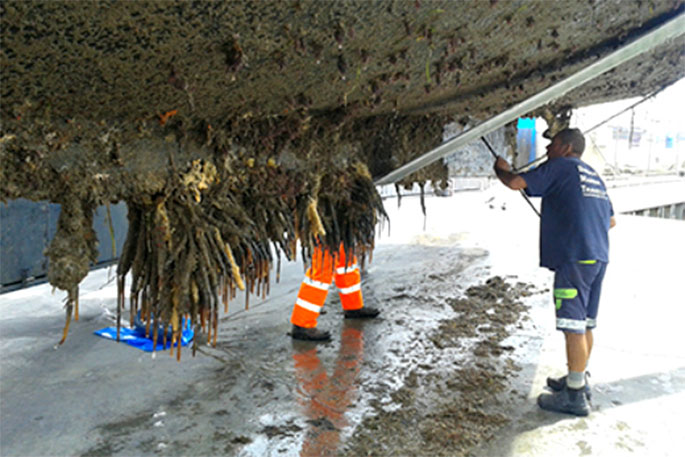The public is being asked for its views on whether a more consistent regulatory framework is required to help stop the spread of marine pests across New Zealand's four busiest boating regions.
For several years, the Waikato, Bay of Plenty, Auckland and Northland regions - alongside Biosecurity New Zealand and boaties from all over - have been working together to stop the spread of unwanted marine pests like Mediterranean fanworm hitchhiking on vessel hulls.
Waikato Regional Council's Integrated Catchment Services Manager, Patrick Whaley, says while Biosecurity New Zealand (a business unit within the Ministry for Primary Industries) manages national rules to minimise the risk of new pest species arriving on vessels from overseas, the regulations for (mainly Kiwi-based) vessels moving around within coastal waters vary from region to region.
"Given our four northern-most regional councils (Northland, Auckland, Waikato and Bay of Plenty Toi Moana) are also collectively home to the country's biggest boating populations, we think a consistent regulatory approach to managing marine pests is worth considering."
Patrick says New Zealand's coastline and rich, diverse marine life has long been at the heart of our shared national identity, but as the population - and an associated increase in boat movements - grew, so too did the risks of marine pest spread.
"These pests threaten our incredible coastal playground and its underwater life, including kaimoana. They also pose considerable risks to our tourism and aquaculture industries."
Patrick says there are a number of potential options to consider, ranging from a requirement for a clean hull at all times, only when moving or only when moving to specially identified places, and each option has its pros and cons.
"If new rules were to be proposed, agencies would also need to consider implementation implications, such as roles and responsibilities, where costs should lie and how these should be funded."
He says the four northern councils want to hear what their respective local communities think before advancing the initiative further.
"We'd like to encourage as many people as possible to take this opportunity to have a say on a local authority issue that traverses several regions."
A discussion document outlining the different options, including pros and cons for each, along with the opportunity to give feedback is available at www.bionet.nz.
The two-month feedback period runs from Monday 18 March until Friday 24 May 2019.
Patrick says all feedback will be reported to each of the four councils around mid-2019 and this will guide future decisions on whether a consistent regulatory framework should be developed.
"Before going down that road, any changes would need to be agreed to by each council and would follow a formal public consultation process."
For background information about marine biosecurity, visit the Ministry for Primary Industries' Marine Biosecurity Porthole at www.marinebiosecurity.org.nz



0 comments
Leave a Comment
You must be logged in to make a comment.